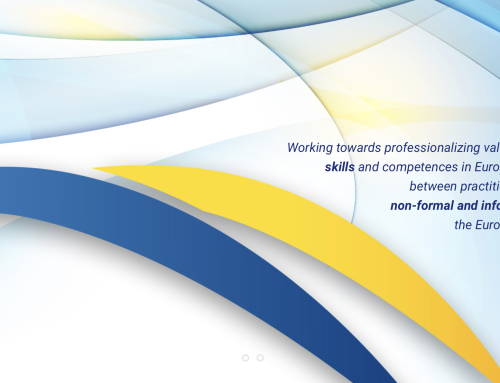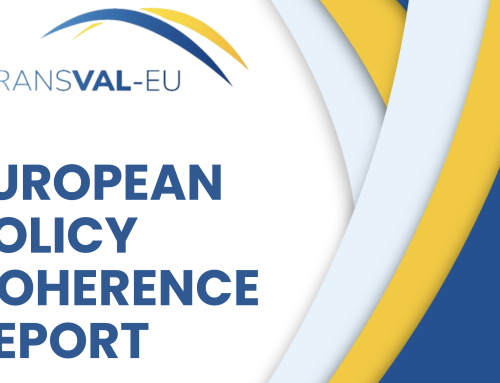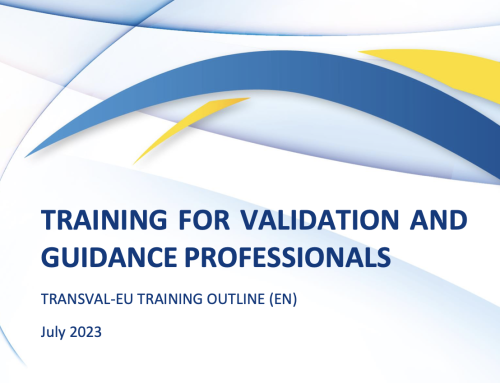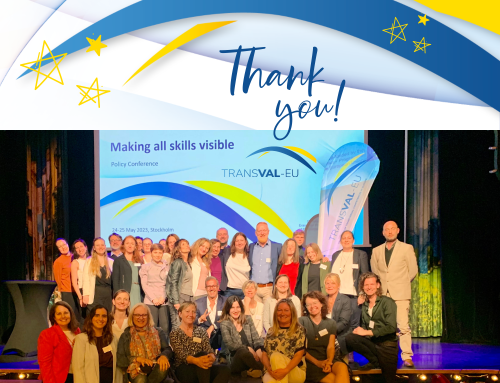What’s new in TRANSVAL-EU?
TRANSVAL-EU consortium held its third partner meeting on 1-2 February 2022. Participation was again high with as much as 30 participants from partner organisations joining. We celebrated early the first year of the project anniversary (which started in March 2021) though regretting not being able to meet face-to-face. However, we are optimistic that we will be able to meet in person in 2022. Project partners were asked to express what they learned in the project’s first year and “how to deal with complexity” ranked high in the answers and is generally linked to the large partnership (29 partners with associate partners counted) which is a cooperation challenge in itself. The project ambition is another challenge – the many activities and tasks foreseen to improve validation and guidance practitioners’ competences in dealing with transversal skills as per the project complex work plan.
On the agenda were planned discussions around the progress of a competence profile for practitioners which includes a list of essential skills for practitioners to have in order to validate or provide guidance around transversal skills. Also, EIESP shared updates about the progress of the highly expected EU report on the state of play of validation of transversal skills. The report is very promising and will be pioneer work for sharing knowledge and good practices on policies and initiatives related to transversal skills. It will be finally published in March 2022.
Earlier in January, the Polish partner IBE held two design thinking workshops with practitioners involved in the project from the 5 EU countries (LT, IT, AT, BE, PL) for identifying their needs. This led to very interesting preliminary results that were shared during the partner meeting. Some results found:
- transversal competences are not included explicitly in study programmes/modules, qualifications, national frameworks and/or inventories, which in practice renders them invisible (the practitioners have no possibility of formally recognising them and the candidates have less interest and motivation to get them recognised);
- there is no widespread knowledge and common terminology related to transversal competences;
- there are no indicators for measuring transversal competences;
- there are no tools for assessing transversal competences specifically.
There is no doubt that TRANSVAL-EU is contributing to all these points!
Besides the research work done and mentioned above, a lot of work is also being produced for the creation of a training programme (“curriculum” and “toolkit”) for practitioners – which is foreseen to be a 2-day programme including 7 training units (from 1h30 to 3 hours each) preceded and followed by online sessions:
- TU1: Transval-EU competence framework
- TU2: Increasing the reliability of the assessment: comprehending descriptors
- TU3: The validation process of transversal competences: stages and practitioners’ transversal competences
- TU4: The validation process of transversal competences: tools and methods
- TU5: Cooperation with peers and stakeholders
- TU6: Adaptation of the training to the national contexts
- TU7: Evaluation of the training
With the purpose of finally meeting face-to-face, the EU training has been postponed to May as partners all agree that a training in person is more effective than online. The dates are now set for 10-11 May and the training will take place in Italy hosted by Forma.Azione. Around 30 trainees from diverse backgrounds, organisations and sectors are expected to actively take part and evaluate the first edition.
At LLLP, we are looking forward to seeing the results of the project become tangible and completed.
By Pauline Boivin, LLLP




